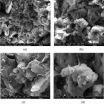(Press-News.org) A visit to the dentist could one day require a detailed look at how genes in a patient's body are being switched on or off, as well as examining their pearly whites, according to researchers at the University of Adelaide.
In a new paper published in the Australian Dental Journal, researchers from the University of Adelaide's School of Dentistry have written about the current and future use of the field of epigenetics as it relates to oral health.
Speaking on Dentist's Day (Thursday 6 March), co-author Associate Professor Toby Hughes says epigenetics has much to offer in the future treatment and prevention of dental disease.
"Our genetic code, or DNA, is like an orchestra - it contains all of the elements we need to function - but the epigenetic code is essentially the conductor, telling which instruments to play or stay silent, or how to respond at any given moment," Associate Professor Hughes says.
"This is important because, in the case of oral health, epigenetic factors may help to orchestrate healthy and unhealthy states in our mouths. They respond to the current local environment, such as the type and level of our oral microbes, regulating which of our genes are active. This means we could use them to determine an individual's state of health, or even influence how their genes behave. We can't change the underlying genetic code, but we may be able to change when genes are switched on and off," he says.
Associate Professor Hughes is part of a team of researchers at the University of Adelaide that has been studying the underlying genetic and environmental influences on dental development and oral health.
He says that since the completion of the Human Genome Project in 2007, epigenetics has had an increasing role in biological and medical research.
"Dentistry can also greatly benefit from new research in this area," he says. "It could open up a range of opportunities for diagnosis, treatment and prevention.
"We know that our genome plays a key role in our dental development, and in a range of oral diseases; we know that the oral microbiota also play a key role in the state of our oral health; we now have the potential to develop an epigenetic profile of a patient, and use all three of these factors to provide a more personalized level of care.
"Other potential oral health targets for the study of epigenetics include the inflammation and immune responses that lead to periodontitis, which can cause tooth loss; and the development and progression of oral cancers.
"What's most exciting is the possibility of screening for many of these potential oral health problems from an early age so that we can prevent them or reduce their impact."
INFORMATION:
The full paper can be found at the Australian Dental Journal's website.
Media contact:
Associate Professor Toby Hughes
School of Dentistry
The University of Adelaide
Phone: +61 8 8313 3295
toby.hughes@adelaide.edu.au
Genetic techniques have role in future of dental care
2014-03-06
ELSE PRESS RELEASES FROM THIS DATE:
Black boys viewed as older, less innocent than whites, research finds
2014-03-06
WASHINGTON – Black boys as young as 10 may not be viewed in the same light of childhood innocence as their white peers, but are instead more likely to be mistaken as older, be perceived as guilty and face police violence if accused of a crime, according to new research published by the American Psychological Association.
"Children in most societies are considered to be in a distinct group with characteristics such as innocence and the need for protection. Our research found that black boys can be seen as responsible for their actions at an age when white boys still benefit ...
Energy drinks linked to teen health risks
2014-03-06
The uplifting effects of energy drinks are well advertised, but a new report finds consumption among teenagers may be linked with poor mental health and substance use.
Researchers are calling for limits on teen's access to the drinks and reduction in the amount of the caffeine in each can.
The paper by researchers at the University of Waterloo and Dalhousie University, published in Preventive Medicine, found that high school students prone to depression as well as those who are smoke marijuana or drink alcohol are more likely to consume energy drinks than their peers.
...
Computational tool offers new insight into key biological processes
2014-03-06
Researchers from North Carolina State University have developed a computational tool designed to guide future research on biochemical pathways by identifying which components in a biological system are related to specific biochemical processes, including those processes responsible for gene expression, cell signaling, stress response, and metabolism.
"Our goal was to identify modules, or functional units, which are critical to the performance of the biochemical pathways that govern a host of biological processes," says Dr. Cranos Williams, an assistant professor of electrical ...
Why soil changes color in air
2014-03-06
According to the results of a recent study, soil color changes in the atmosphere basically through the oxidation of chemical substances in the soil. The fundamental mechanism is the remodeling effect of micro-structures because of motion effects and chemical reactions of the water–soil–electrolyte–atmosphere system leading to the coupling and transforming of soil particles. The above provides a theoretical foundation for the assessment and forecast of the stability of the geotechnical environment.
Nowadays, with increasing focus on the harmful effects of fog and haze ...
Eating red and processed meat -- what do scientists say
2014-03-06
Oxford, March 6, 2014 -- Recent reports warn about a link between eating red and processed meat and the risk of developing cancer in the gut. These reports have resulted in new nutritional recommendations that advise people to limit their intake of red and processed meats. A recent perspective paper, authored by 23 scientists, published in the latest issue of journal Meat Science underlines the uncertainties in the scientific evidence and points to further research needed to resolve these issues and improve the foundation for future recommendations on the intake of red ...
Waiting for a donor heart: Motion prolongs survival
2014-03-06
For many people with advanced cardiac insufficiency, a heart transplant may be their only hope. e. But waiting for a donor heart to come along is a race against time. Patients who remains active and stay in good shape psychologically can significantly increase their chances of surviving this period. . Anxiety-ridden, depressive and passive patients, on the other hand, run the risk of further serious deterioration of their heart's ability to function.
This is what health psychologists at the universities of Luxembourg, Mainz and San Francisco found in a study conducted ...
Offshore dispersant data and decisions
2014-03-06
COLUMBIA, S.C. — Dispersants are often used in oil spill responses because they may mitigate the environmental impacts of the spill by moving the oil from the water surface into the water column enhancing its biodegradation. While this process helps reduce the likelihood of oil exposure to marine wildlife such as seabirds and marine mammals, aquatic toxicity on marine communities from the dispersant and the chemically dispersed oil needs to be considered more carefully.
Scientists at Research Planning, Inc. and HDR Ecosystem Management evaluated the standard toxicity ...
Researchers identify a critical link between obesity and diabetes
2014-03-06
BOSTON – It's by now well established that obesity is a major risk factor for diabetes. But what exactly is it about extra body fat that leads to insulin resistance and blood glucose elevation, the hallmarks of diabetes?
Over the past several years, Beth Israel Deaconess Medical Center (BIDMC) endocrinologist Barbara Kahn, MD, has developed a large body of research suggesting that a molecule called retinol binding protein 4 (RBP4) plays a key role in the process. Kahn's lab was the first to show that elevated levels of RBP4 – previously known only for its role as a ...
Strategies on the Internet to discredit generic drugs
2014-03-06
Although there is widespread consensus among the scientific community that the composition of generic drugs is identical to that of brand name drugs, this is not the case among the public. In a four-year study of over 3,000 opinions on Spanish web pages, researchers at the National University of Distance Education (UNED) of Spain have identified communication strategies aimed at creating risk perceptions about generic drugs, which may influence the low usage of these drugs.
Generic drugs, which are copies of brand name drugs whose patent has expired, have exactly the ...
New research could help make 'roll-up' digital screens a reality for all
2014-03-06
Researchers from the University of Surrey worked together with scientists from Philips to further develop the 'Source-Gated-Transistor' (SGT) - a simple circuit component invented jointly by the teams.
Previously, they found that the component could be applied to many electronic designs of an analog nature, such as display screens. Through this current study, researchers have now shown that SGTs can also be applied to next-generation digital circuits.
SGTs control the electric current as it enters a semiconductor, which decreases the odds of circuit malfunction, improves ...

